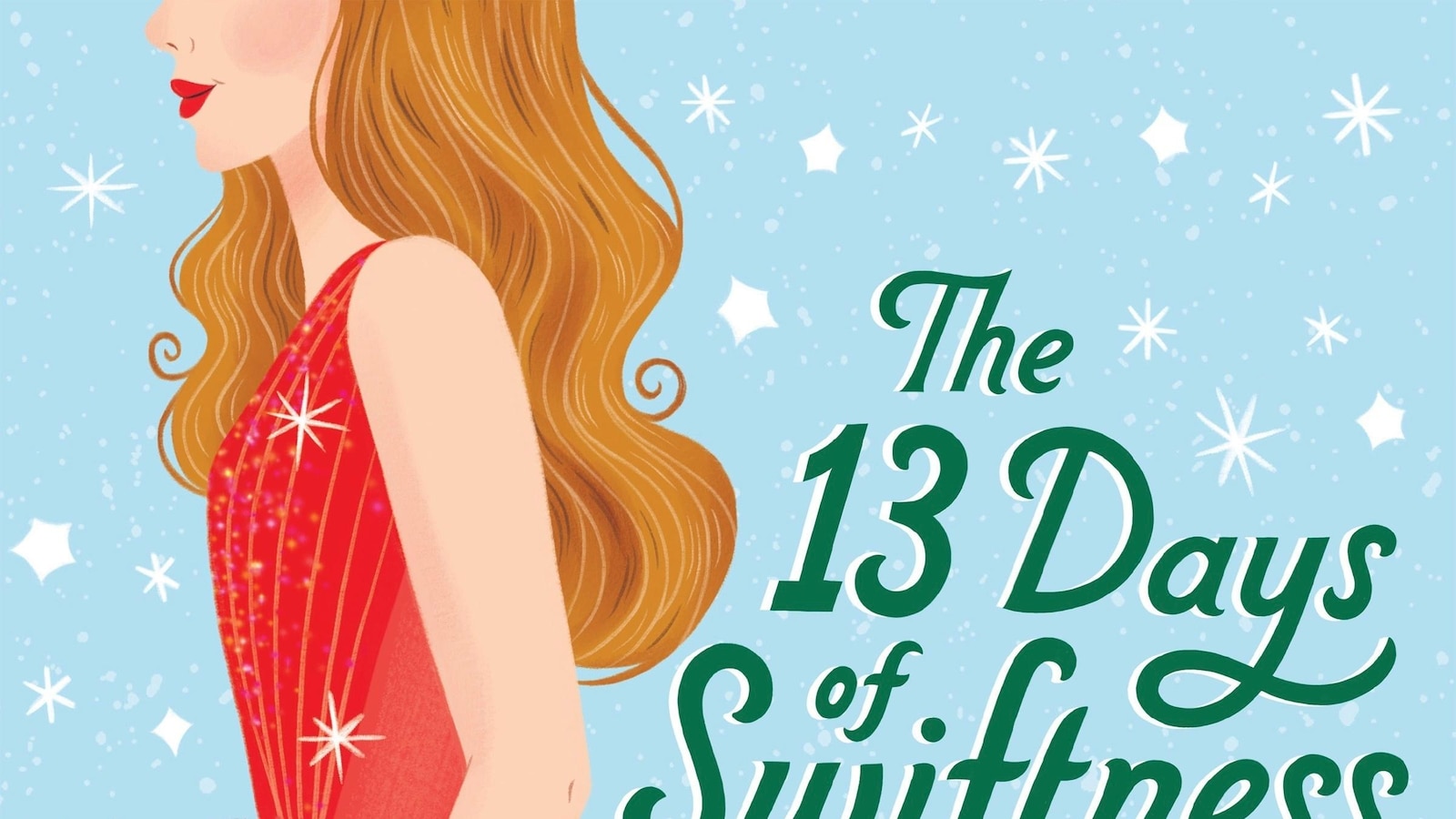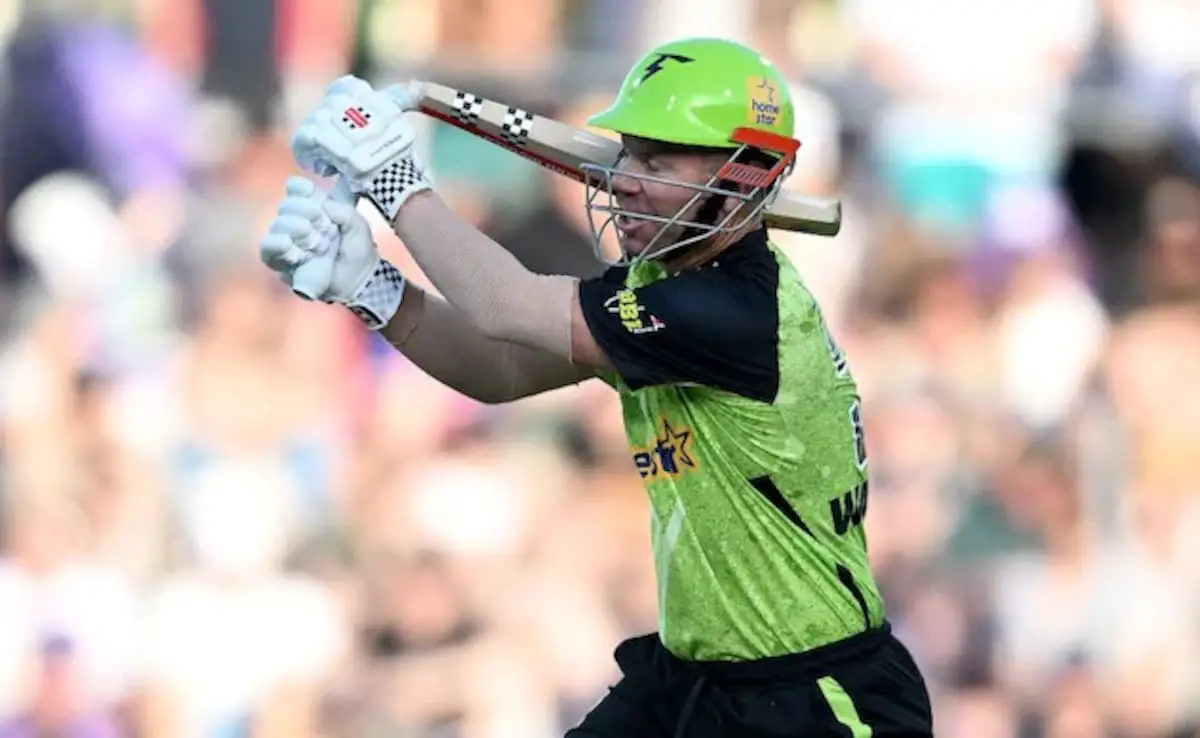
NEW YORK — Brandon Sanderson, whose epic “Wind and Truth” is a highlight of the upcoming publishing season, sees nothing wrong with the idea of “escapism.”
“It’s just the ability to go to another world and relate to other people’s problems, problems that aren’t our problems. It’s a really valuable tool in our lives,” the fantasy novelist told The Associated Press during a recent telephone interview. Sanderson’s fans have waited four years for “Wind and Truth,” the 1,300-page fifth volume in his “Stormlight Archive” fantasy series.
He acknowledges, with mixed feelings, that some will take relatively little time to finish it.
“They will absolutely read it in two days, which feels both gratifying and a little horrifying,” he says. “You put your heart and soul into something for so long, knowing that fans are going to be done in a couple of days and say, ‘When’s the next one?’”
The presidential election is expected to dominate headlines this fall, but booksellers look to Sanderson and others to sustain the wave of fantasy and the hybrid romantasy novels that have been selling strongly over the past few years. “Wind and Truth” is among numerous anticipated works that include Jeff VanderMeer’s “Absolution,” Alan Moore’s “The Great When,” Cecy Robson’s “Bloodguard” and Kerri Maniscalco’s “Throne of Secrets,” the second installment of her “Prince of Sin” series.
According to Circana, which tracks around 85% of the retail market, fantasy sales have been growing for the past five years and since last summer have jumped by nearly 75%, driven in part by the million-selling romantasy authors Sarah J. Maas and Rebecca Yarros.
“The fantasy subject is the top growth segment of the total U.S. print book market,” says Circana analyst Brenna Conner, who cites the reader-driven sales of #BookTok as a strong factor. “I also believe escapism is a component as more readers seek out stories with elements of escapism to counter daily stress and fatigue of the news cycle.”
At Barnes & Noble, senior director of books Shannon DeVito notes that fantasy has expanded and diversified, blending horror and romance and mystery. She cites Maas and Yarros, and such upcoming releases as Frances White’s gay-themed “Voyage of the Damned,” John Gwynn’s Norse-inspired “The Fury of the Gods” and Ann Liang’s mythical “A Song to Drown Rivers.”
“It’s event-proof,” DeVito says of fantasy and its offshoots. “It doesn’t depend on news of the day.”
President Joe Biden’s decision not to seek reelection may have little effect on the fantasy market, but it upended the fall campaign and left a void in the publishing schedule: No one had time to work up in-depth books on the Democrats’ new nominee, Vice President Kamala Harris. The best chance for revelations likely comes from Bob Woodward’s “War,” which centers on Biden’s handling of the conflicts in Ukraine and the Middle East, but also promises insights on Harris and the presidential race.
Publishers of anti-Biden books are proceeding with scheduled fall releases, including former New York City Mayor Rudy Giuliani ’s “The Biden Crime Family.” Harris’ Republican opponent, former President Donald Trump, has a book of photos coming, “Save America,” which on its cover has the AP’s image of him bloodied and raising his fist after the assassination attempt in July. His wife, former first lady Melania Trump, is releasing the memoir “Melania.” Donald Trump’s estranged niece and bestselling author, Mary Trump, returns with more family (horror) stories in “Who Could Ever Love You.”
H.R. McMaster, who served briefly as national security adviser during the Trump administration, has written “At War With Ourselves.” Onetime Trump opponent Hillary Clinton reflects on marriage, faith and politics in the essay collection “Something Lost, Something Gained.” Project 2025 architect Kevin Roberts’ “Dawn’s Early Light,” for which GOP vice presidential nominee JD Vance wrote the foreword, has been postponed until just after the election amid Republican efforts to distance themselves from the controversial blueprint for a second Trump term. But pre-election readers can consider recommendations from Joel B. Pollak’s “The Agenda: What Trump Should Do in His First 50 Days,” with a foreword from Trump ally Steve Bannon.
Sally Rooney’s “Intermezzo” is a story of grief and sibling rivalry from the author known for the best sellers “Normal People” and “Conversations With Friends.” Nobel laureate Olga Tokarczuk ‘s “The Empusium: A Health Resort Horror Story” is the Polish’s author variation of the Thomas Mann classic “The Magic Mountain.” Nobelist Annie Ernaux of France combines memoir and images in “The Use of Photography” and perennial Nobel candidate Haruki Murakami expands on an early short story for “The City and Its Uncertain Walls,” which his Japanese publisher is calling “soul-stirring, 100% pure Murakami world.”
Pulitzer Prize winner Richard Powers ’ “Playground” touches upon everything from climate change to artificial intelligence, while another Pulitzer winner, Louise Erdrich, sets “The Mighty Red” on a North Dakota beet farm during the economic crash of 2008. In “Tell Me Everything,” Pulitzer winner Elizabeth Strout returns to fictional Crosby, Maine, and such friends from “Olive Kitteridge” and ”Olive, Again” as the elderly title character and the scribe Lucy Barton.
“I never intended to write about them again. I think I keep bringing them back because they are so very well known to me,” Strout says. “They feel almost as real as actual people. I know they’re not real people, but they feel like real people.”
John Edgar Wideman blends fiction, history and memoir in “Slaveroad,” and Rebecca Godfrey’s “Peggy” is a fictional take on the heiress-art collector Peggy Guggenheim that was completed by Leslie Jamison after Godfrey’s death in 2022. New fiction is also coming from Richard Price, Lee Child, Michael Connelly, Kate Atkinson, Janet Evanovich, Rachel Kushner, Richard Osman, Tova Reich, Paula Hawkins, Jami Attenberg and Rumaan Alam.
Margaret Atwood began her career as a poet and her verse is collected in “Paper Boat: New and Selected Poems: 1961-2023,” while “Blues in Stereo” features early work from the late Langston Hughes. Prize winners Paul Muldoon, Kimiko Hahn and Matthew Zapruder all have collections coming out, along with new books from Billy Collins, Ben Okri, Frank X Walker and E. Hughes.
“Dear Yusef” is a tribute to the celebrated poet Yusef Komunyakaa that includes contributions from Terrance Hayes, Major Jackson and Sharon Olds. “Latino Poetry: The Library of America Anthology” compiles verse from the 17th century to the present.
Like all pop culture phenomena, from the Beatles to “Star Wars,” Taylor Swift ‘s appeal isn’t confined to a single art form. Her songs and her life have inspired young adult novels, children’s books and biographies and the wave continues.
Katie Cotugno’s “Heavy Hitter” is an athlete/pop star romance based in part on Swift and NFL great Travis Kelce, while “The 13 Days of Swiftness” is a picture story for holiday shoppers who can chant such lines as “12 strings for strumming” and “11 bracelets beaded.”
The anthology “Poems for Tortured Souls” includes verse from Emily Dickinson, Edna St. Vincent Millay and other alleged kindred souls of Swift’s. Biographies/critical studies include the picture book “Taylor Swift: Wildest Dreams,” by Erica Wainer and Joanie Stone, and Rolling Stone writer Rob Sheffield’s “Heartbreak Is the National Anthem: How Taylor Swift Reinvented Pop Music.”
Lisa Marie Presley’s “From Here to the Great Unknown” was nearly done before she died in 2023 and was completed by daughter Riley Keough. In “Didion and Babitz,” Lili Anolik draws upon newly discovered letters as she contrasts the California bards Joan Didion and Eve Babitz, who died within days of each other in 2021 and whose lives, Anolik documents, were more entwined than previously known.
Celebrity books also will include Cher’s “The Memoir, Part One,”Al Pacino ‘s “Sonny Boy,” Josh Brolin’s “From Under the Truck,” Kelly Bishop’s “The Third Gilmore Girl” and Connie Chung’s ”Connie.” Pedro Almodóvar shares stories-allegories-musings in “The Last Dream” and Neneh Cherry looks back on her life and music in “A Thousand Threads.”
“Patriot” is a posthumous memoir from imprisoned Russian opposition leader Alexei Navalny. Supreme Court Justice Ketanji Brown Jackson has written “Lovely One: A Memoir,” Malcolm Gladwell returns to famous territory in “Revenge of the Tipping Point,” and Ta-Nehisi Coates explores the power of stories, and misinformation, in “The Message.”
Numerous books draw upon racism in U.S. history and those who fought against it. David Greenberg’s “John Lewis” is a biography of the late civil rights activist and congressman, while Wright Thompson’s “The Barn” promises new information on the murder of Emmett Till. Russell Cobb’s “Ghosts of Crook County,” like David Grann’s “Killers of the Flower Moon,” tells of a white oil man in Oklahoma who seeks to steal Native property. In “The Black Utopians,” Aaron Robertson tracks a century of planned communities and asks, “What does utopia look like in black?”
___
This story has corrected “The Black Utopians” author’s name from Aaron Robinson to Aaron Robertson.







